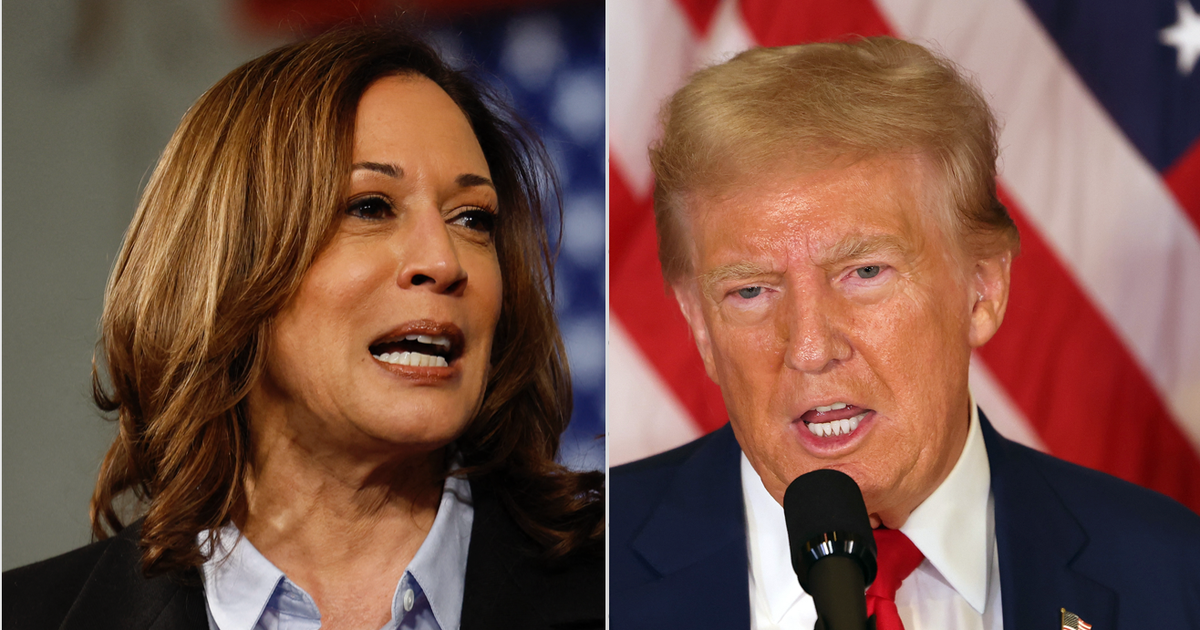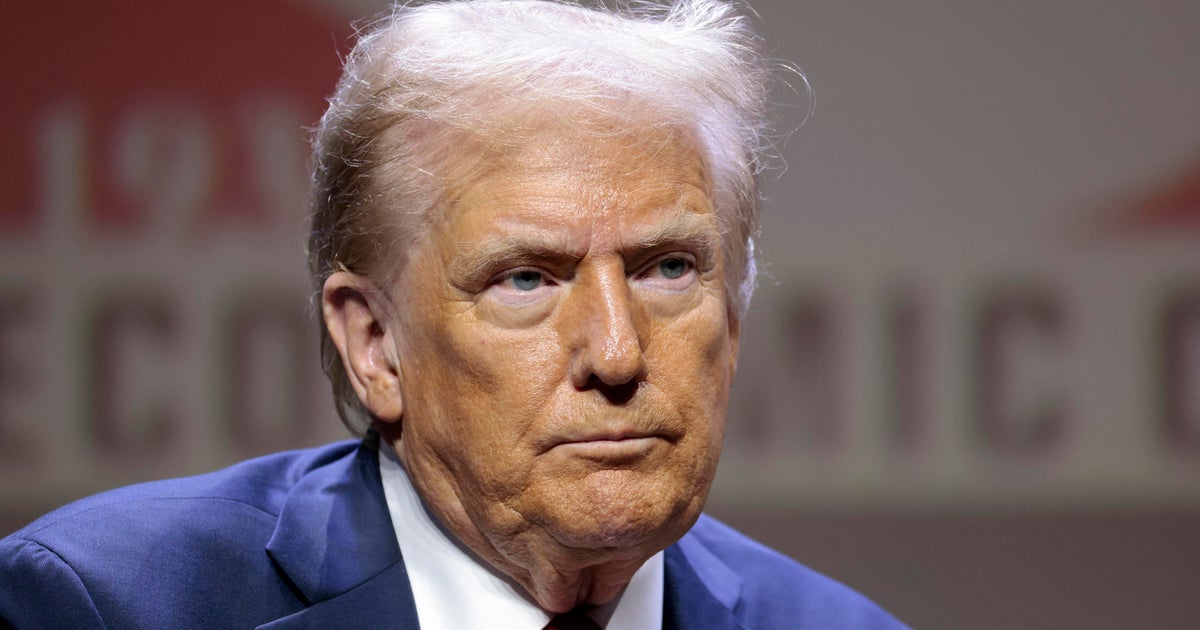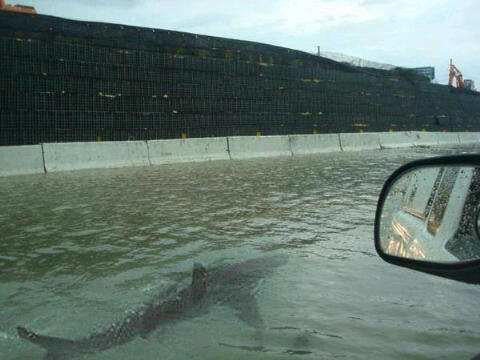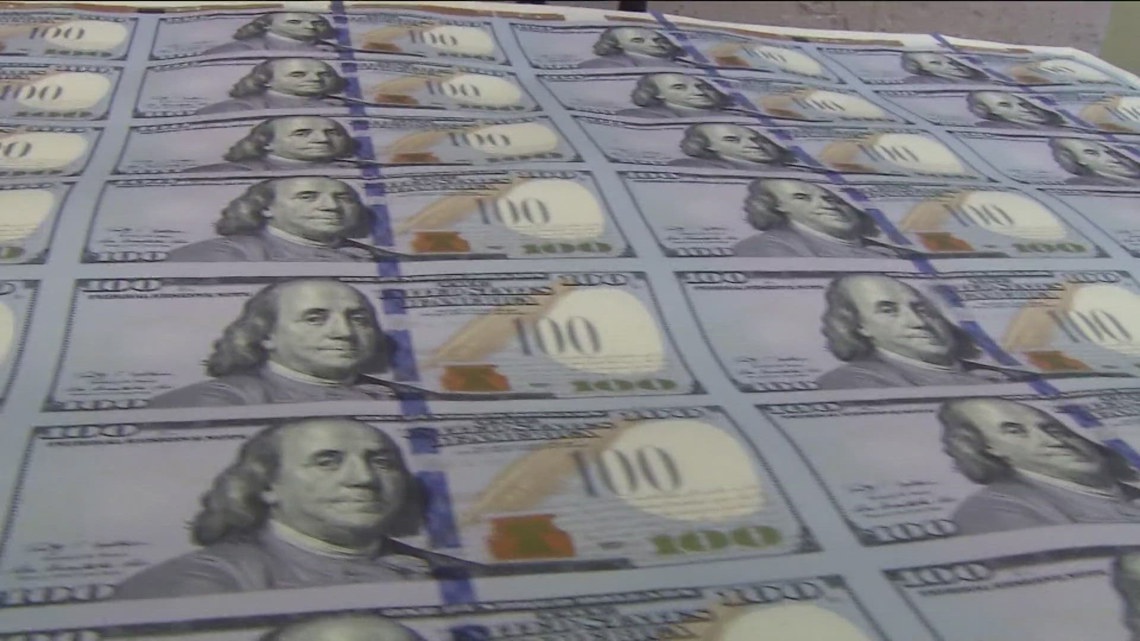CBS News
Harris and Trump’s positions on Iran and Israel as tensions flare

Washington — Before Iran’s missile attack on Israel in early October to avenge the killing of Hamas, Hezbollah and Iranian officials, Vice President Kamala Harris already had to navigate a divide in the Democratic Party over the U.S. support for Israel. The conflict between Israel and Iran may not have the same impact on the presidential election as domestic issues like inflation and reproductive rights, but the next president will have to manage a delicate situation in the region as the threat of an all-out war escalates.
Republicans have pressured the Biden administration to send more security assistance to Israel and to threaten Tehran and its proxies with military ramifications. President Biden said last week he does not support a potential attack on Iran’s nuclear sites by Israel.
Former President Donald Trump blames the growing conflict on what he says is the weak leadership of Mr. Biden and Harris. Mr. Biden’s answer to the nuclear site question, Trump said, should have been “hit the nuclear first and worry about the rest later.”
Here are the positions Harris and Trump have taken on Israel and Iran.
Israel-Gaza war
Harris has touted the Biden administration’s efforts to broker a cease-fire deal between Israel and Hamas as the Gaza war hits the 1-year mark. She has repeatedly said Israel has the right to defend itself but has also acknowledged the suffering of Palestinians.
“We must chart a course for a two-state solution. And in that solution, there must be security for the Israeli people and Israel and in equal measure for the Palestinians,” she said at the September presidential debate. “But the one thing I will assure you always, I will always give Israel the ability to defend itself, in particular as it relates to Iran and any threat that Iran and its proxies pose to Israel. But we must have a two-state solution where we can rebuild Gaza, where the Palestinians have security, self-determination and the dignity they so rightly deserve.”
Harris has not laid out a plan for a two-state solution.
Earlier this year she called on the Israeli government to do more to increase the flow of humanitarian aid to Palestinians. Harris’ national security adviser said in August that the Democratic nominee does not support an arms embargo on Israel. Harris said in September she supported Mr. Biden’s decision in May to withhold a shipment of 2,000-pound bombs from Israel amid concerns that they’d be used in Rafah, where more than a million Palestinians were sheltering after fleeing their homes.
In an interview that aired Monday on “60 Minutes,” Harris was asked whether the U.S. can consider Israeli Prime Minister Benjamin Netanyahu a close ally, in the face of his resistance to a cease-fire and his bombing of Lebanon to target Hezbollah, though the U.S. has cautioned Israel against igniting a wider war with its northern neighbor.
“I think, with all due respect, the better question is: do we have an important alliance between the American people and the Israeli people? And the answer to that question is yes,” Harris said.
Trump has claimed that the Oct. 7, 2023, terrorist attack by Hamas would have never happened if he were president. But the former president, who has portrayed himself as a staunch defender of Israel, has criticized the Israeli government’s handling of the war. In November, he said “Israel has to do a better job of public relations, frankly, because the other side is beating them at the public relations front.” He also called on Israel to “get it over with.”
Trump was asked during the June presidential debate whether he would support an independent Palestinian state, to which he responded, “I’d have to see.”
As president, Trump controversially moved the U.S. embassy from Tel Aviv to Jerusalem and ended decades of U.S. opposition to Israeli settlements in the occupied West Bank. (The Biden administration reversed the settlement decision.)
Iran
It’s unclear whether Harris would seek to cut a new nuclear deal with Iran if she wins the election. During the 2020 campaign, Harris, who was running in a crowded Democratic presidential primary, said she would seek to rejoin the Iran nuclear agreement, “so long as Iran also returned to verifiable compliance.”
Trump has been highly critical of the Obama-era deal, formerly known as the Joint Comprehensive Plan of Action, and removed the U.S. from the international agreement in 2018. He called the 2015 agreement “disastrous” and “a great embarrassment.”
After Iran’s missile attack on Israel last week, Harris called Iran a “destabilizing, dangerous force in the Middle East” and said she supported Mr. Biden’s order for the U.S. military to shoot down Iranian missiles targeting Israel.
“Iran is not only a threat to Israel, Iran is also a threat to American personnel in the region, American interests, and innocent civilians across the region who suffer at the ends of Iran-backed and based terrorist proxies,” she said. “We will never hesitate to take whatever action is necessary to defend U.S. forces and interests against Iran and Iran-backed terrorists and we’ll continue to work with our allies and partners to disrupt Iran’s aggressive behavior and hold them accountable.”
Trump shared a similar sentiment, accusing Iran of “exporting terror all over the world.” But he also blamed the Biden administration’s leadership for the missile barrage, again making the argument that it would not have happened if he were in the White House.
He has also suggested that Iran may be connected to the two assassination attempts against him. He said the U.S. should threaten to blow the country to “smithereens” if it attacked a presidential candidate.
There is so far no indication from the FBI or Secret Service that Iran was involved in the assassination attempts. However, Iran does appear to be a threat to Trump’s safety. A Pakistani national with alleged ties to Iran was arrested in August and charged with plotting to assassinate current and former government officials across the political spectrum, including Trump, according to multiple sources familiar with the investigation.
Iran is also accused of trying to interfere in the presidential election. The Justice Department recently charged three Iranian hackers with allegedly targeting members of Trump’s campaign.
CBS News
Beware the “street shark” and other common hurricane rumors and misinformation

As Florida and the Southeast recover from two major hurricanes, conspiracy theories and falsehoods have surged to levels that the head of the Federal Emergency Management Agency says are unprecedented. First responders, local officials and nonprofit organizations in the storm zones have had to dedicate time and resources to debunking false claims.
Officials say these falsehoods have real-world consequences, including preventing victims from evacuating or seeking help, distracting from recovery efforts and making the job of aid workers harder.
And while the scale of misinformation following Helene and Milton took some by surprise, the claims themselves follow a familiar pattern. Similar misinformation has followed other hurricanes and natural disasters, including exaggerated crime reports, fake or misleading visuals and outright scams. Researchers say understanding the misinformation is crucial to mitigating its spread and minimizing its impact.
Here is a look at some of the recurring themes to watch out for:
Unverified crime scares
In the aftermath of Helene, rumors spread online that people were slashing tires of trucks transporting aid to storm victims, a claim that local police said is not true.
Unverified crimes reports have followed storms for decades. After Hurricane Katrina devastated parts of Louisiana in 2005, officials later said claims of looting, murder, and rape, which were repeated by some news media and officials, were either exaggerated or false.
At one point, the Mayor of New Orleans reported multiple murders at the Louisiana Superdome, where thousands sheltered. The National Guard later said there were no homicides at the stadium.
A 2018 report by the Department of Homeland Security found that false claims often spread after disasters because verified information is slow to emerge, fuelling rumor and speculation.
Conspiracies
Jennie King, director of Climate Disinformation Research and Policy at the Institute for Strategic Dialogue, said conspiracies blaming the government for hurricanes have also become routine. Researchers at the institute found this claim and others debunked by FEMA generated more than 160 million views online after Helene.
“If it is producing a visceral emotion, negative or positive, that should cause you to pause for breath,” King said. “Do a little bit of wider reading. And if you do find out that those claims are false or unsubstantiated, don’t give them additional oxygen.”
Fake or misleading photos or videos
Edited or misleading videos and images have become a regular feature of major weather events. As Hurricane Dorian approached Florida in 2019, old images circulated online that pushed false claims of looting.
After Sandy hit New York and New Jersey in 2013, researchers identified over 10,000 unique posts on Twitter, now called X, that contained fake images.
One of these images was the now-famous “street shark” — an edited image of a shark swimming along a highway — which has reappeared during multiple hurricanes since at least 2011.
Fact checkers also regularly debunk images and videos of landmarks and transportation hubs submerged in water, which can mislead the public during natural disasters.
A digitally altered image of planes under flood waters, created by an artist in an effort to warn about the potential impact of climate change, was falsely described as showing the effects of hurricanes in 2017 and 2018.
And after Hurricane Milton hit Florida, AI-generated images appearing to show flooding at Disney World spread online on multiple platforms.
AI tools have made it easier for people to publish misleading or completely fabricated visuals, according to Anupam Joshi, who co-authored a study on misleading visuals after Hurricane Sandy.
“You need to take everything you see online with a very healthy grain of salt,” said Joshi, the director of the University of Maryland, Baltimore County Cybersecurity Institute.
Scams
Scammers often target victims of hurricanes and those wishing to help them. After Hurricane Katrina, scammers impersonated charities including the Red Cross, which was one of the reasons the U.S. Department of Justice established the National Center for Disaster Fraud.
Jun Zhuang, a researcher who studied misinformation online following Hurricanes Harvey and Irma, told CBS News that scammers solicit money from victims through fraudulent links.
“‘Hey, if you register to this link, you will get $200.’ Or the other way around, ‘Hey, please donate through this link,’ but you never know where your money is going to,” said Zhuang.
Historically, bad actors also target storm victims with offers of assistance. After Hurricane Sandy, fake “contractors” claimed that FEMA would reimburse survivors for damage assessments and rapid repairs to their homes. One of these scammers defrauded 30 people of about $1.9 million.
To avoid falling victim to scams, FEMA has advised people to be wary of unsolicited messages and to verify charities before donating.
CBS News
Boeing says it’s cutting 10% of its workforce, or about 17,000 employees

Boeing on Friday said it’s cutting 10% of its workforce, or about 17,000 employees.
In a in a memo Friday, CEO Kelly Ortberg announced the layoffs, writing that the aerospace giant must make “tough decisions” to stay competitive. Ortberg added that the company is also delaying its program to develop the 777X airplane and halting production of the 767 aircraft after it delivers the remaining 767 planes that have been ordered by customers.
The layoffs and production changes come amid a labor dispute at Boeing, with 33,000 machinists going on strike last month after failing to agree on a contract. The aerospace giant’s finances and reputation have also taken a hit this year due to manufacturing problems and multiple federal investigations, following a mid-air panel blowout in January.
“Our business is in a difficult position, and it is hard to overstate the challenges we face together,” said Ortberg in the memo. “Beyond navigating our current environment, restoring our company requires tough decisions and we will have to make structural changes to ensure we can stay competitive and deliver for our customers over the long term.”
Ortberg, the former head of aerospace company Rockwell Collins, joined Boeing as CEO in August, replacing outgoing CEO Dave Calhoun in the wake of increased regulatory scrutiny sparked by production problems at the storied company.
In his Friday memo, Ortberg said the layoffs will include executives, managers and employees, and take place within the “coming months.”
CBS News
Trump campaign requested use of military aircraft for final stage of campaign

Washington — Former President Donald Trump’s campaign requested military assets to enhance his security in the final weeks of the campaign in the wake of threats to his life, two sources familiar with the matter told CBS News.
In emails to the White House and the Secret Service late last week, the Trump campaign requested that a military aircraft be used to transport the former president before the election, according to the sources. The request also included expanded flight restrictions over Trump’s residences and campaign rallies, as well as the use of ballistic glass — a security measure the former president is already receiving.
The Washington Post first reported the requests Friday.
The development follows two assassination attempts against Trump since July. He was also the target of an alleged murder-for-hire plot involving a Pakistani national with ties to Iran. The country holds the former president and his administration officials responsible for a drone strike that killed Iranian Maj. Gen. Qasem Soleimani in 2020.
President Biden seemed receptive to the enhanced campaign security measures on Friday, telling reporters he “told the department to give him every, every single thing he needs.”
“As long as he doesn’t ask for F-15s,” Mr. Biden said at the White House.
He said the Republican presidential nominee should be treated as if “he were a sitting president.”
“If it fits within that category, that’s fine,” he added. “But if it doesn’t, he shouldn’t.”
The enhanced security is a break from precedent. No presidential nominee or former president in recent history has been transported by military plane before an election.
After the second assassination attempt against Trump, Mr. Biden signed a bipartisan bill that bolsters the Secret Service protection for major presidential and vice presidential candidates. The bill requires Secret Service to apply the same standards in determining the number of agents needed to protect the president, vice president and the major candidates for those offices.
In a statement to CBS News, Secret Service spokesperson Anthony Guglielmi said Trump “is receiving the highest levels of protection.”
“Assistance from the Department of Defense is regularly provided for the former President’s protection, to include explosive ordnance disposal, canine units, and airlift transportation,” he said. “Other enhancements the Secret Service has is providing includes Temporary Flight Restrictions (TFRs) over the former President’s residence and when he travels. Additionally, the former President is receiving the highest level of technical security assets which include unmanned aerial vehicles, counter unmanned aerial surveillance systems, ballistics and other advanced technology systems.”
Guglielmi said the Secret Service will “continue to adjust and enhance its protective posture as needed to mitigate evolving threats.”
contributed to this report.








